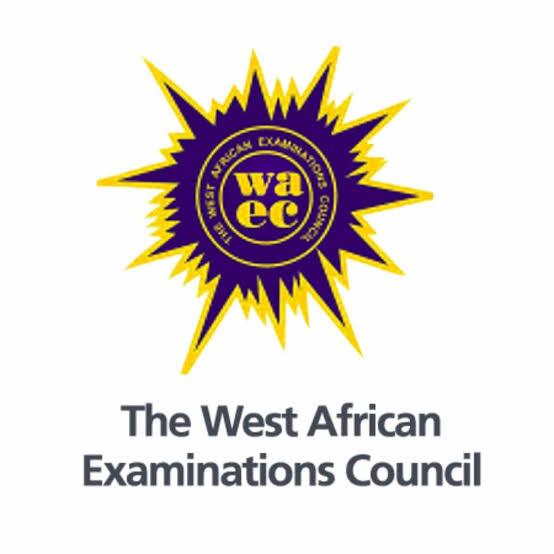Physics is a compulsory science subject for WAEC and GCE candidates interested in engineering, health sciences, technology, and more. Understanding Physics not only prepares you for exams but also sharpens your problem-solving skills. This official guide contains the full WAEC | GCE Physics syllabus for 2025/2026, exam format, practical topics, success tips, FAQs, and everything you need to pass Physics confidently.
WAEC | GCE Physics Syllabus (2025/2026)
Physics for WAEC and GCE covers Theory, Objectives, and Practical sections. Below is a structured breakdown of the syllabus:
1. Measurements, Units, and Dimensions
| Topics |
What to Study |
| Fundamental and Derived Units |
SI Units, conversions, prefixes |
| Measurements |
Instruments, errors, accuracy |
| Dimensions of Physical Quantities |
Dimensional analysis |
2. Kinematics and Dynamics
| Topics |
What to Study |
| Scalars and Vectors |
Representation, addition, subtraction |
| Motion |
Speed, velocity, acceleration, equations of motion |
| Newton’s Laws of Motion |
Applications in real life |
| Momentum |
Conservation of momentum |
| Circular Motion |
Centripetal force and applications |
| Friction |
Types, advantages, disadvantages |
3. Work, Energy, and Power
| Topics |
What to Study |
| Work Done |
Calculation and units |
| Energy Types |
Kinetic, potential, conservation laws |
| Power |
Definition, calculations |
4. Properties of Matter
| Topics |
What to Study |
| Elastic Properties |
Hooke’s Law, stress, strain |
| Pressure |
In solids, liquids, and gases |
| Surface Tension |
Concepts, effects |
| Viscosity |
Application in fluids |
| Capillarity |
Explanation and examples |
5. Heat and Thermodynamics
| Topics |
What to Study |
| Temperature and Heat |
Thermometers, scales, heat transfer methods |
| Thermal Expansion |
Linear, area, and volume expansion |
| Gas Laws |
Boyle’s law, Charles’ law, Pressure law |
| Heat Capacity |
Specific heat capacity, latent heat |
| Kinetic Theory of Gases |
Assumptions, real gases vs ideal gases |
6. Waves, Light, and Sound
| Topics |
What to Study |
| Types of Waves |
Transverse and longitudinal |
| Reflection and Refraction |
Laws, real-life examples |
| Lenses and Mirrors |
Image formation, applications |
| Optical Instruments |
Microscope, telescope, human eye |
| Sound Waves |
Properties, speed, echo, Doppler effect |
7. Electricity and Magnetism
| Topics |
What to Study |
| Static Electricity |
Charges, Coulomb’s Law, electric field |
| Current Electricity |
Ohm’s Law, resistors, circuit calculations |
| Electrical Energy and Power |
Calculations using P=VI, energy conversion |
| Magnetism |
Magnetic fields, earth’s magnetism, uses |
| Electromagnetic Induction |
Faraday’s Law, Lenz’s Law |
| Transformers and Generators |
Working principles, calculations |
8. Modern Physics
| Topics |
What to Study |
| Radioactivity |
Types of radiation, half-life, precautions |
| Nuclear Energy |
Fission, fusion, applications, dangers |
| Photoelectric Effect |
Einstein’s explanation |
| Quantum Physics (Introductory) |
Basic principles |
9. Practical Physics
| Practical Areas |
What to Focus On |
| Measurement Techniques |
Length, mass, volume, time |
| Electrical Circuits |
Series and parallel circuits |
| Determination of Constants |
Acceleration due to gravity, resistance |
| Experiments on Reflection, Refraction, and Lenses |
Real-life experiments |
| Graph Plotting |
Interpreting experimental results |
WAEC | GCE Physics Exam Format
| Paper |
Content |
Duration |
| Paper 1 |
50 Multiple Choice Questions |
1 Hour 30 Mins |
| Paper 2 |
Theory (Structured and Essay) |
2 Hours |
| Paper 3 |
Practical Physics (Experiments) |
2 Hours |
Top Success Tips for WAEC | GCE Physics Exam
| Success Tip |
Why It’s Important |
| Understand Formulas and Derivations |
Most questions involve applying formulas |
| Draw and Label Diagrams Properly |
Diagrams carry marks in theory and practical papers |
| Solve Past Questions Regularly |
Identify repeated topics and question patterns |
| Master Practical Physics |
Experiments are predictable; practice in advance |
| Practice Calculations Daily |
Mathematics skills are essential in Physics |
| Revise SI Units |
Marks are awarded for correct units in answers |
| Learn Definitions and Laws |
Objective paper focuses on definitions |
| Use Recommended Textbooks |
E.g., New School Physics by M.W. Anyakoha |
| Manage Time in Exam |
Avoid spending too much time on one question |
| Revise Consistently |
Continuous practice improves retention |
FAQs About WAEC | GCE Physics Exam
1. How many papers are in WAEC Physics?
Three: Paper 1 (Objective), Paper 2 (Theory), and Paper 3 (Practical).
2. Is practical compulsory in WAEC Physics?
Yes. Paper 3 (Practical Physics) is compulsory and carries significant marks.
3. Which topics repeat often in Physics?
Motion, electricity, heat, magnetism, and optics are always tested.
4. Which textbook is recommended?
New School Physics by M.W. Anyakoha and WAEC past questions series.
5. Can I pass Physics without memorizing formulas?
No. You need to know standard formulas and understand how to apply them in solving problems.
Conclusion
Passing WAEC or GCE Physics depends on understanding concepts, solving problems daily, mastering practical experiments, and using the right textbooks. Focus on high-yield topics like electricity, motion, and waves, and practice extensively using past WAEC questions.
With consistent effort and structured study, you can confidently aim for an A1 in Physics.



